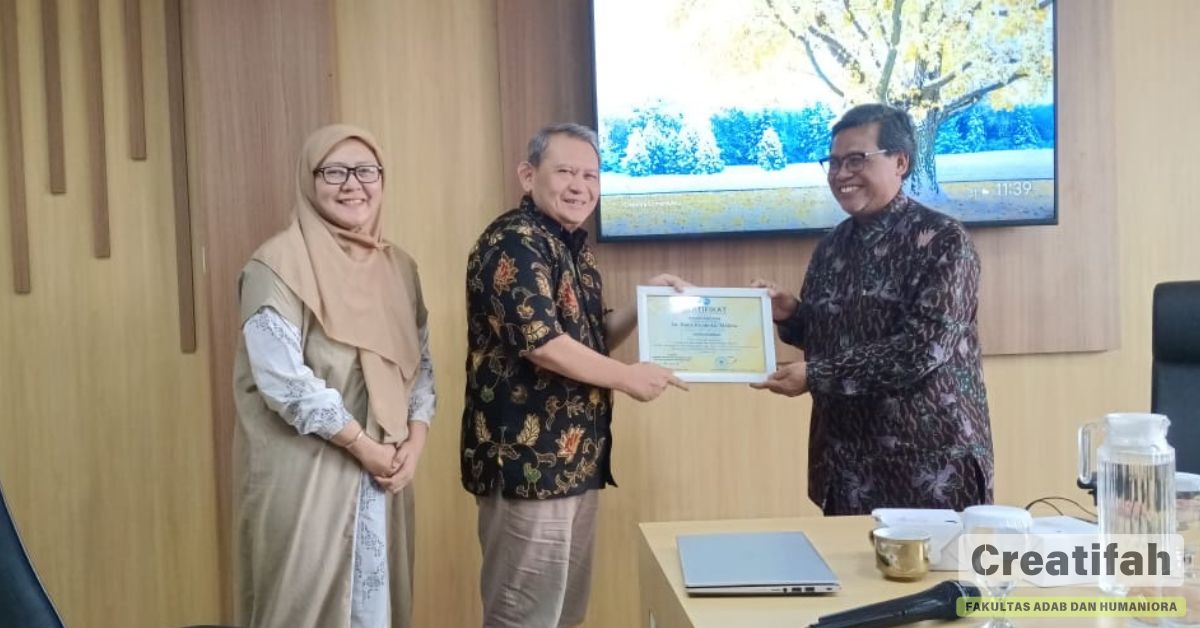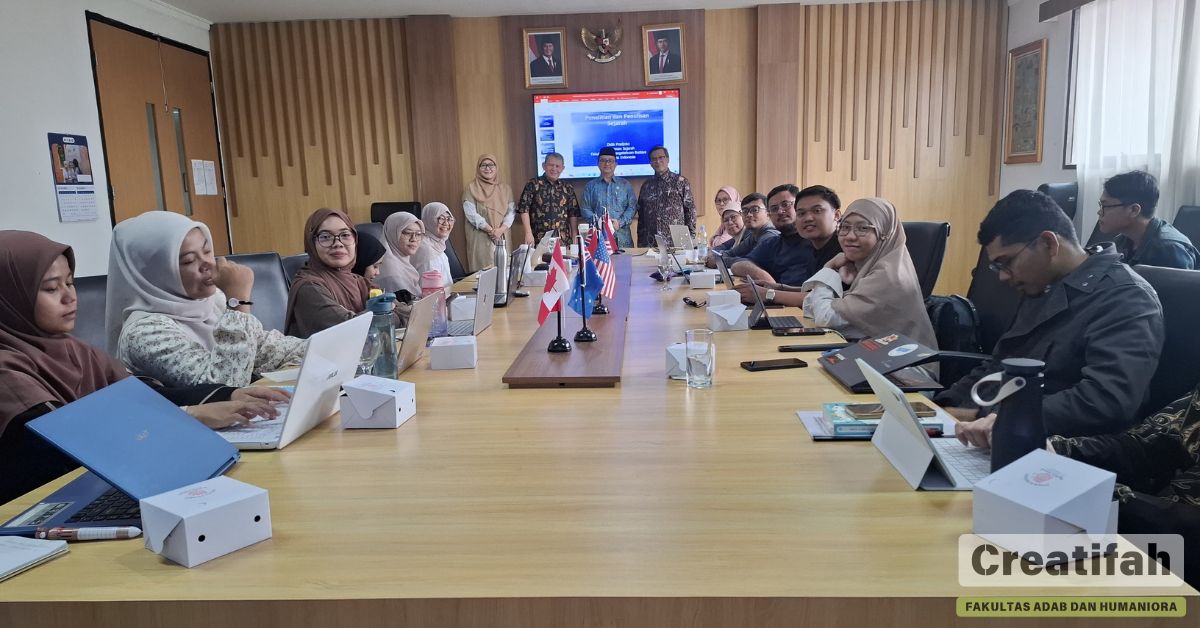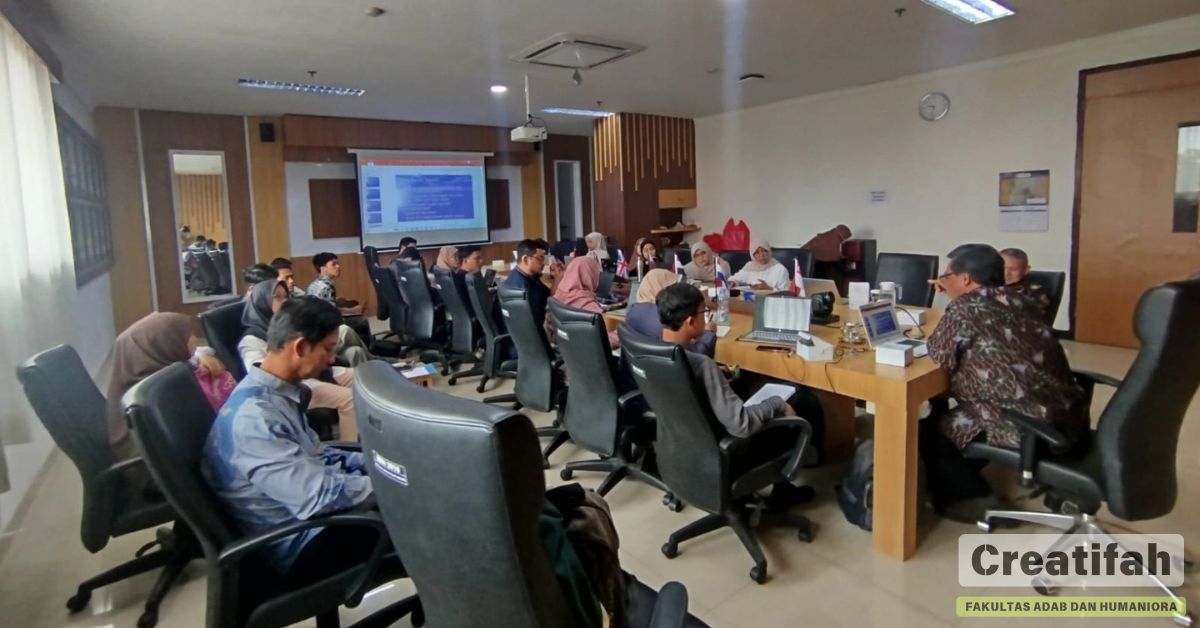Master of Islamic History and Culture [MSKI] Study Program and Doctor of Islamic History and Civilization (DSPI) Holds History Thesis and Dissertation Writing Workshop
FAH Online News - The MSKI and DSPI FAH UIN Jakarta Study Program held a Thesis and Dissertation Writing Workshop on November 14 2025 in the Main Meeting Room Lt. 2, FAH by presenting Dr. Didik Pradjoko, M.Hum., Chair of the History Department, Faculty of Cultural Sciences, University of Indonesia, as the main resource person. This activity was also immediately welcomed by the Dean of FAH UIN Jakarta, Dr. Ade Abdul Hak, M.Hum., Head of MSKI and DSPI Study Programs, Prof. Dr. Jajat Burhanudin, MA., and immediately moderated by Dr. Mauidlotun Nisa’, M.Hum. as Secretary of the MSKI and DSPI Study Programs.
In his presentation, Didik emphasized that history cannot be separated from space, time and actors. He explained that historical reconstruction was carried out by utilizing various types of sources, ranging from archives, documents, photographs, to documentaries. According to Didik, historical reconstruction is important because it allows each generation to contribute knowledge to the next generation. He said that history books are structured writing that was born through the process of searching for sources and writing historiography. Historians are also not required to focus only on one theme; Research on empires, for example, can include political, maritime, social, cultural aspects, and so on, with an approach tailored to the research theme.
In this session, he also explained the characteristics of history as a science, including being empirical, having human objects, being bound by space and time, producing generalizations, and using scientific methods such as heuristics, criticism, interpretation and historiography. He also introduced four types of historiography: traditional, colonial, national, and academic. Didik emphasized that history is never 100 percent true or false, but writing history must remain objective—factual, honest, fair, impartial and unbiased. He also highlighted the importance of periodization in facilitating understanding changes from time to time, as the core of historical studies. Regarding thesis and dissertation writing, Didik emphasized that methodology must be explained descriptively and concretely, starting from the heuristic process, source search, source criticism, interpretation, to historiographic writing. The methodology section, he said, should ideally be written over two to three pages.
At the end of the workshop, Didik emphasized the importance of annotation or literature review as the first step in determining the topic and title of historical research. Notes on the contents of books, approaches or theories used, findings, and reference sources are important elements in compiling historical scientific works. With a strong methodological understanding, he hopes that workshop participants will be able to produce quality research that contributes to the development of historical science in Indonesia.
Author: Yoga Difa Perdana
Documentation:




![Master of Islamic History and Culture [MSKI] Study Program and Doctor of Islamic History and Civilization (DSPI) Holds History Thesis and Dissertation Writing Workshop](https://asset.uinjkt.ac.id/uploads/LXdjJGPw/2025/11/workshop-mski-n-dspi.jpg)